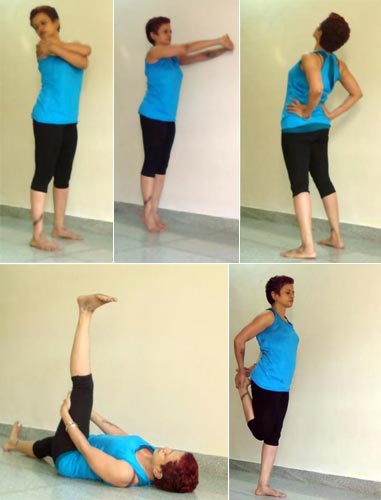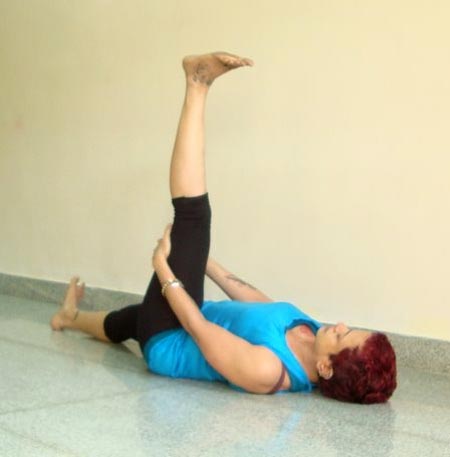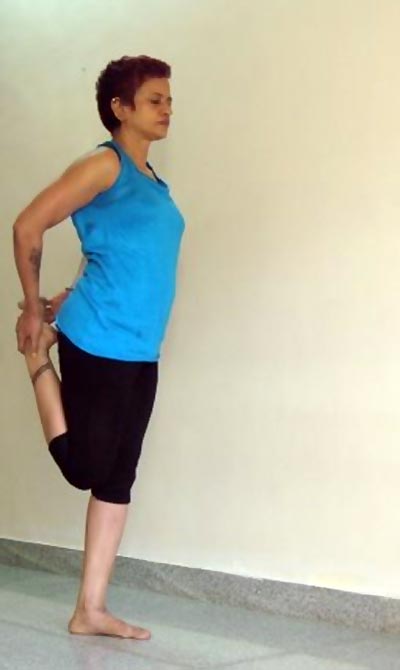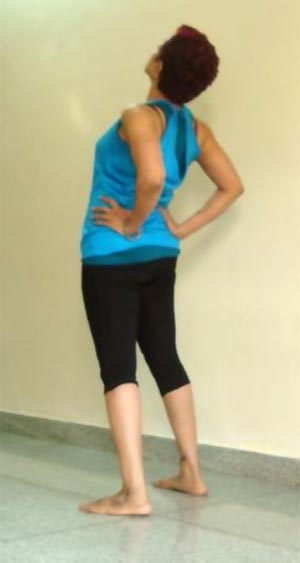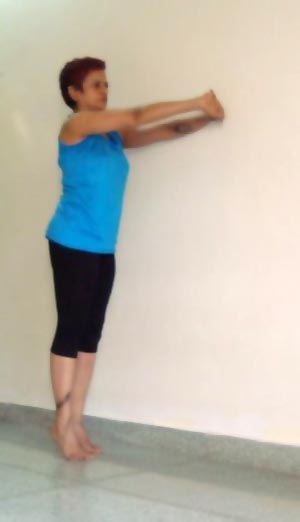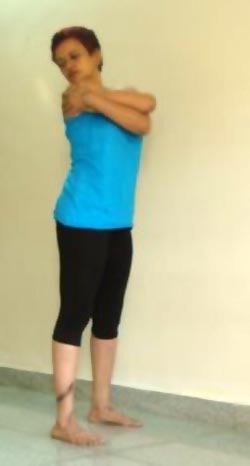 | « Back to article | Print this article |
Five yoga poses for a healthy heart
Shameem Akthar, yogacharya trained with the Sivananda Vedanta Yoga Center, takes you through five poses that strengthen your blood circulation and heart.
People who are diagnosed with a heart problem usually become intimidated by any physical activity. Even the earlier medical norm used to be to take things light, and not do anything strenuous. However, that attitude has changed drastically, with medical fraternity agreeing that an active life is the best way to handle heart problems.
Returning to an organised form of physical activity, monitored and individualised, will further the goal of preventing future episodes and helping the heart recover and heal.
Even those who do not have any heart problems but want to prevent them are advised to lead an active life. The latest researches all point accusingly at the sedentary lifestyle as the biggest culprit guilty of creating complications in the circulatory system. A sedentary life, it has been found, is as bad as heavy smoking and as injurious to your health!
In yoga too, there are various practices that are meant to heal and strengthen the heart. These must be learnt in a phased manner. They also have to be individualised, depending on earlier exercise habits of the person, and the stage of recovery.
Including pranayama without breath retention, avoiding strenuous or stimulating ones (like kapalabhati and bhastrika), learning anulom-vilom over several months in a phased manner, doing poses with gentle repetitions rather than in a fast or militant fashion, would be ideal.
Pranayama like ujjayi (victory breath) and bhramari (humming bee) are particularly powerful therapies in heart cases.
Also, those with heart problems should sign in only for therapy classes rather than general yoga classes. Doing the entire practice in a meditative fashion would multiply the benefits. Warm-ups like the pawan muktasana series (energy releasing poses) that cover the entire body is a good way to start the practice. Adding a longer yoga nidra or other yogic meditation at the end of the class would complete the sadhana.
For more of Shameem's yoga writings visit http://jaisivananda.blogspot.com. Shameem's second book Yoga in the workplace, with photographs by ace photographer Fawzan Husain, is now available at online shops and bookshops across the country. It is also available as e-book, with Kindle, Amazon.
Disclaimer: This column just shares the columnist's passion for yoga which is ideally learned under the guidance of an expert.
Click NEXT for more
Five yoga poses for a healthy heart
1. Supta hasta padasana (Lying hand to leg pose)
Lie on your back. Stretch out both legs. Inhale, to raise right leg up. Hold it with both hands at the thighs. Ensure the left leg is pressed into the mat. Continue normal breathing. Drop the right leg back on an exhalation.
Repeat for left leg. Do five to ten times with each leg.
Later, after several weeks of regular practice, you may increase duration in the final pose to 15 seconds or more.
Benefits: Tones the legs, and this in turn powers the entire circulatory system since the movement of the legs help the heart's function. This pose has several therapeutic value: cures insomnia, relieves stress, cures spinal issues, tones limbs, treats urogenital system disorders.
Click NEXT for more
Five yoga poses for a healthy heart
2. Natrajasana (Dancing Shiva pose, first stage)
This is a simpler version of the dancing Shiva pose. You bend the right leg at the knee, folding it hold the right foot at the hip, as shown, with both hands. Continue normal breathing, hold the pose as long as you can. Release to repeat for the other leg.
Benefits: This helps with impulse control and anger management. Helps treat postural defects. Tones legs, supports heart, expands the respiration.
Click NEXT for more
Five yoga poses for a healthy heart
3. Ardhachandrasana (Crescent pose, basic version)
Stand with the feet a little apart. Place hands at waist, as shown, point elbows backwards. Inhale, tilting the head slightly upward, so chest expands. Continue normal breathing. Exhale release. Repeat thrice. Do only a few times, and do not hold too long.
Benefits: This strengthens the chest muscles and heart, but must be done very gently by those with a heart issue. It tones the spinal nerves, also involved with automatic functions of the body. Tones hands and legs.
Click NEXT for more
Five yoga poses for a healthy heart
4. Tadasana (Palmtree pose, modified)
Stand up straight, feet a foot apart, pointing ahead. Interlock fingers, pointing them out, as shown, with palms out towards wall in front. Inhale, going up on toes, exhale to lift hands at chest level. Hold for a few seconds, breathing normally. Inhale, exhaling lower heels back to ground. Do a few times.
Benefits: All hands movements work the chest region, giving it a supportive muscular tone. The full body stretch is stress-releasing, tones the legs , hands and the entire torso, giving a slight massaging effect on the organs inside. Spinal nerves are toned.
Click NEXT for more
Five yoga poses for a healthy heart
5. Kati chakrasana ( Abdominal twist)
Stand up straight, feet a foot apart, pointing ahead. Hug yourself as shown. Inhale, exhaling, turn to the right, looking over the right shoulder. Inhale, returning head back to centre. Exhale, twist head to left, to look over left shoulder. Do five to ten times, gently, focusing on the breath.
Benefits: As above, but includes a gentle twist along the abdomen that also tones the digestive tract.
